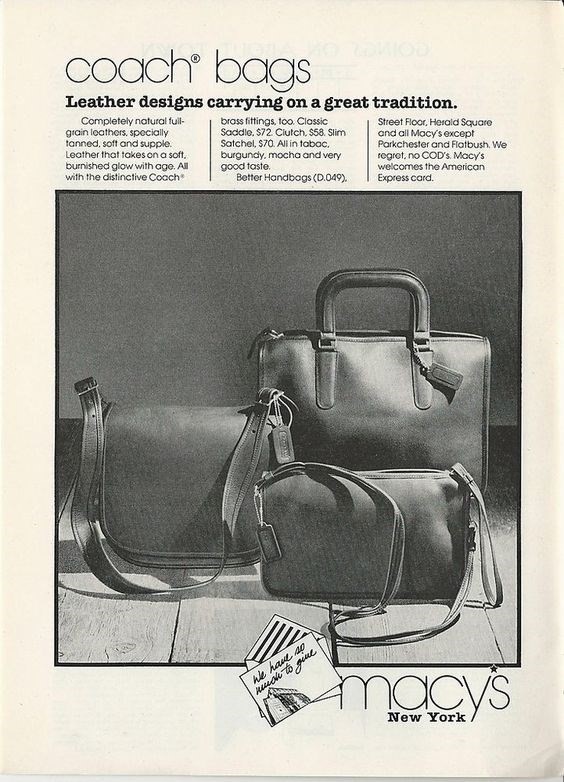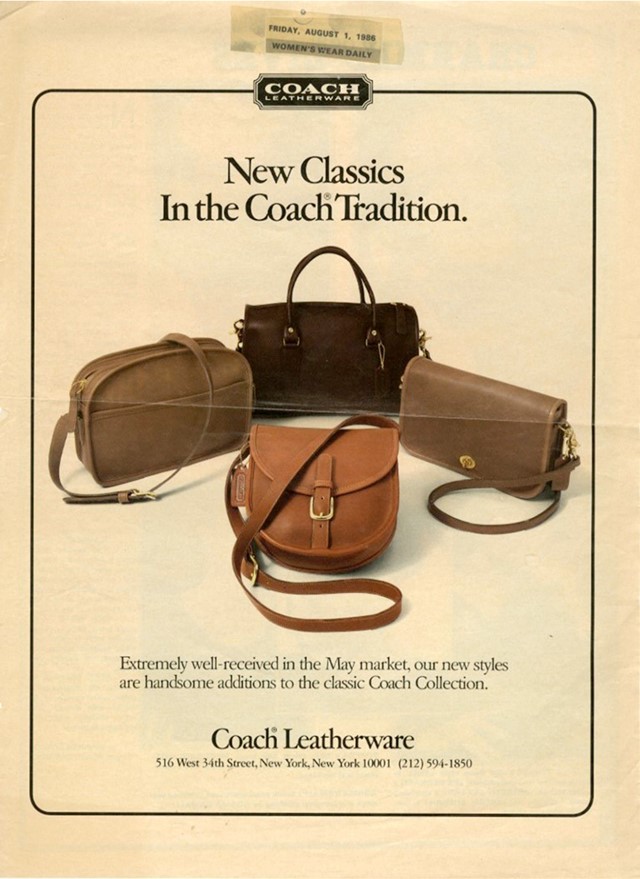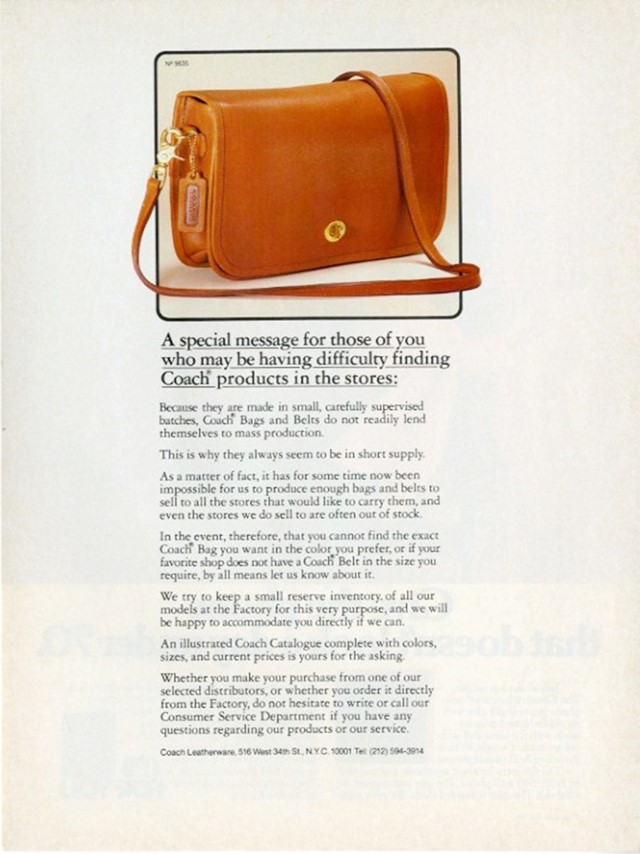We examine how the original American house of leather has a monopoly on the history of cool (and chronicle some of its spectacular archival advertising campaigns)
Coach, the original American house of leather, has been handcrafting its goods from the heart of New York City since 1941. Throughout infinite fluctuations in popular culture, there are few other U.S.-based brands that can stake a claim in the wardrobes of cultural influencers from every decade since. More often than not, the luxury leather goods market is associated with a European design sensibility, with production taking place in the storied ateliers of either Italy or France. But as cultural historian Joel Dinerstein succinctly outlines: “The French have chic… But Americans invented cool”. This is exemplified no better than in Coach’s oeuvre of bags, wallets and accessories that have been modelled by some of the coolest individuals of the 20th and 21st centuries; from Ali MacGraw and Lauren Hutton to Kim Gordon and Courtney Love.

When Stuart Vevers took over the creative direction of the house in 2013, cleverly launching Coach’s first ready-to-wear line and taking the brand to new heights of commerciality, he monopolised on that which already existed within the codes of Coach: a sense of era-defying cool. This is demonstrated in the democratic range of ages that Vevers’ Coach Woman represents – 45-year-old Winona Ryder and her 13-year-old Stranger Things co-star Millie Bobby Brown wearing pieces from the same brand on the S/S17 Coach FROW is a phenomenon rather unfamiliar to fashion. Vevers was also responsible for publishing a book with Rizzoli in October 2016, Coach: The Story of New York Cool, which delved deep into the archives of the Coach handbag, a wealth of chronological archival imagery illustrating how the brand has continually responded to the desires of their audience.

Vintage Coach bags are also something of a collector’s item, with models such as The Dinky, The Saddle Bag and The Slim Satchel highly coveted in particular. Looking at the brand’s archival advertising campaigns, it’s no wonder everyone wanted to get their hands on one at the time, and, obviously still do; for 75 limited edition versions were restored as part of a pop-up this February at Parisian concept store Colette. As Blondie’s Debbie Harry writes in the foreword of Coach’s debut book, “Coach has celebrated decades of style since it was first established in New York City in 1941. Even more remarkable is the growth of its international market. Coach is now a well-known global brand that has expanded into the fashion world with flying colours.” And we don’t see the expanding world of Coach cool slowing down any time soon.
